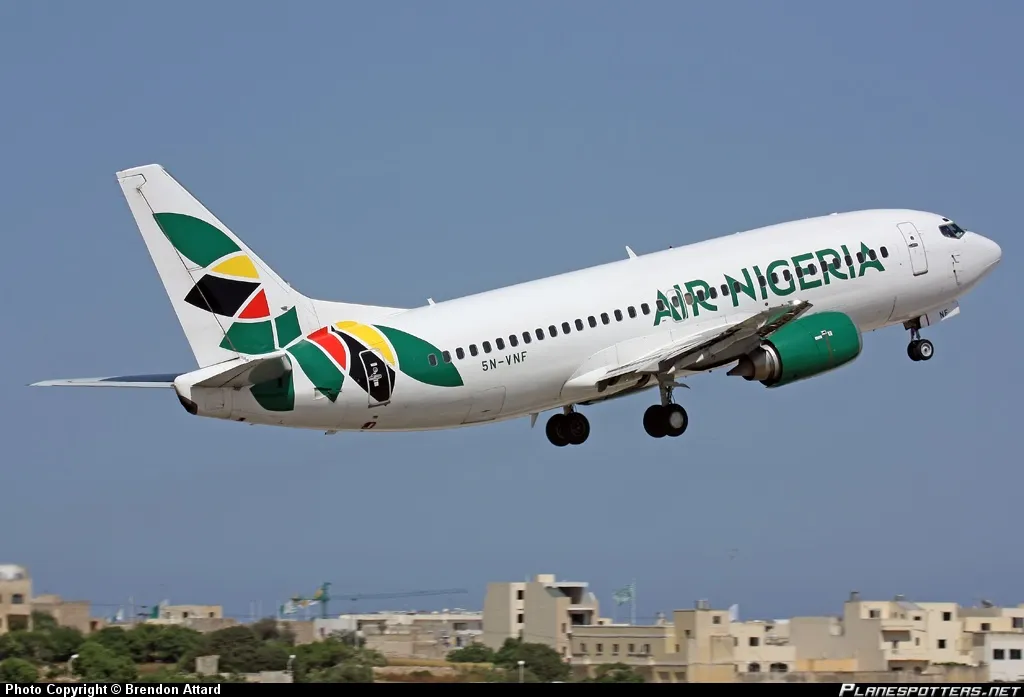The aviation roadmap has set a pathway for the development of comprehensive aviation infrastructure. Some of these infrastructures are visible to airport users while some are safety critical infrastructure, visible to only technical experts, aircraft, and other technical users. The bottom line is the roadmap is aimed at upgrading Nigeria’s aviation sector infrastructure to be globally competitive and also improve the experiences of airport users.
When President Muhammadu Buhari assumed office, he put a premium on the aviation sector, especially the national carrier. He made the national carrier, a critical component of the Aviation Roadmap, a priority project.
The comprehensive roadmap was developed based on a diagnostic analysis, which was presented to stakeholders during the first meeting on May 16, 2016 hosted by the Minister of Aviation, Sen. Hadi Sirika. In eight years, the minister held eight of those stakeholders’ engagements to provide specific updates on the progress made in implementing the roadmap.
A recent aviation sector study for Nigeria by International Air Transportation Association (IATA) in June 2020, spoke to the significant contribution of air transportation to national economy, through providing 241,000 jobs (direct and indirect) and a contribution of $1.7 billion to the national economy. However, the federal government projected that with the successful implementation of the roadmap projects, Nigeria’s overall goal is to grow the aviation sector’s contribution from the current 0.6 to 5 per cent (approximately $14.166bn) or over N6.516trn). The FG further projects that upon implementation of the roadmap, it is estimated that 72,300 jobs (Direct 9,100 and Indirect 63,200 within three years and with 20 aircraft) will be created.
- Two months to go: Buhari Fails To Fulfill Campaign Promises On Poverty Reduction, Unemployment
- How Katsina farmers ‘harvest’ money from sugarcane
Components of Aviation Road Map
The core components of the aviation roadmap according to the policy document include: Establishment of a National Carrier; Development of Agro-Allied/Cargo Terminals § Establishment of Maintenance, Repairs and Overhaul (MRO) Centre; Establishment of an Aviation Leasing Company (ALC); Development of Aerotropolis (Airport Cities); Establishment of an Aviation & Aerospace University; and Concession of 5 International Airports (Abuja, Lagos, Enugu, Kano and Port Harcourt.
Others include: Upgrade of NCAT into an ICAO Regional Training Centre of Excellence; Designation of Four International Airports as Special Economic Zones; Introduction of Policies on Remotely Piloted Aircraft; Adherence to Employment Policies on the Enforcement of Expatriate Quota; and the upgrade of AIB to a Multi-modal Accident Investigation Agency – Nigerian Safety Investigation Bureau (NSIB).
Status of the roadmap
At the eight stakeholder’s forum held in Abuja, the Minister of Aviation Hadi Sirika gave a status report on the projects in the roadmap.
National Carrier: The National Carrier, no doubt, is one of the most critical components of the roadmap because of its appeal to job creation, impact on the economy and national image branding appeal. Already, the National Carrier has been designated Nigeria Air with an approved outline business case, an interim board and management employed, and a core investor – Ethiopian Air – approved. The Nigeria Air would probably have been flying if not for the court case instituted by the Airline Operators Association (AON) challenging the establishment of the airline. The minister still assured that the airline will fly before May 29, 2023. Currently, negotiation meeting with the Ethiopian Airlines Group Consortium and the Federal Government of Nigeria (FGN) is on-going. In the next step, the minister said Federal Executive Council (FEC) approval of the Full Business Case (FBC) Commence operation of local and international flights soon. The benefit to be derived from the establishment of the national Carrier are: reduce capital flight from Nigeria; gain optimal benefit of BASA and SAATM; develop an Aviation hub; contribute to the GDP; facilitate hospitality and tourism; facilitate growth and development of the Nigerian Agricultural Sector; and create jobs around the Agro-Cargo Terminals.
Designation of five international airports (Lagos, Abuja, Enugu, Kano & Port Harcourt) as Special Economic Zones: Mr. President approved the designation of the four International Airports as Special Economic Zones on May 17, 2021. Next step, which is commencement of implementation processes with NEPZA is ongoing. The Benefits of Special Economic Zones are: i. more efficient and business-friendly trade environment with less bureaucratic red tape because of the associated fiscal incentives and packages; ii. attract world class international and local Airlines/Companies into the Nigeria Aviation Industry; iii. attract investment incentives which include; Investment Policies and Protection, General Tax Based Incentives, Sector Specific Incentives, Tariff Based Incentives and Export Incentives; iv. attract Foreign Direct Investment (FDI) and generate employment opportunities and human capital development, thus stimulating the overall improvement of the Nigerian Aviation Industry; v. improves the overall ease of doing business in Nigeria and more.
Airports to be concessioned are as follows: – Murtala Muhammed International Airport (MMIA) Lagos:
- Old International Terminal – Terminal and Ramp
- New International Terminal – Terminal, Ramp, Car Park
- Cargo Terminal – Ramp – Nnamdi Azikiwe International Airport (NAIA) Abuja; Port Harcourt International Airport (PHIA) Port Harcourt and Mallam Aminu Kano International Airport (MAKIA), Kano a. Old International and Domestic Terminal – Terminal, Ramp, Car Park
- New International Terminal – Terminal, Ramp
- Cargo Ramp (To be developed). The current position is that Negotiation with preferred bidders on-going. Draft Full Business Case (FBC) finalized and the FG is targeting a completion period – 2nd quarter, 2023.
Establishment of An Aviation Leasing Company (ALC): An Aviation Leasing Company which would be private sector-driven will be established to address the challenges of limited access to capital and high cost of fund. The ALC will provide leasing opportunities for Nigerian and African airlines in order to boost fleet size, alleviate the problem of aircraft leasing and high insurance premium charges. The current status is that a Full Business Case (FBC) has been completed and certificate of compliance issued by the ICRC. And awaiting FEC approval. Project to commence operation by the 2nd Quarter, 2023 based on the projection.
Establishment of a Maintenance, Repair & Overhaul (MRO) Centre. The establishment of a private sector- driven Maintenance, Repair and Overhaul (MRO) Centre is critical for the diversification and repositioning of the aviation industry as it provides aircraft repairs, overhaul and maintenance services. Experts say currently, this facility does not exist in the whole of West and Central Africa. MRO is therefore a necessary requirement to facilitate development of aviation industry. The proposed facility will have the capacity to serve both Narrow and Wide Body aircraft maintenance requirements and will be located in Abuja. The Full Business Case (FBC) has been completed and certificate of compliance issued by the ICRC, which was subsequently approved by FEC. The project is also billed to commence operation before May 29 2023,
Development of Aerotropolis (Airport Cities): The FG anticipates that the development of Nigeria’s major commercial airports and surrounding communities into efficient, profitable and self-sustaining commercial hubs through increased private sector participation and Foreign Direct Investment (FDI) will create jobs and grow local industry. The project will be structured as a Public Private Partnership (PPP) arrangement where the private partner will be required to design, develop, finance and maintain the aerotropolis during the agreed period. The aerotropolis will contain the full complement of commercial facilities that support airlines and aviation linked businesses. Other components of the project include the development of hospitality and tourism oriented real estate assets; and ancillary support infrastructure.
Currently, the land has been acquired, the process for the selection of preferred partner has commenced.
Development of Cargo/Agro-Allied Airport Terminals: To take advantage of the high value agricultural products potential of Nigeria, the need arose to develop dedicated Cargo/Agro-Allied Terminals and ancillary infrastructure in each of the six (6) geographical zones of the country to facilitate the movement of fresh produce by air. The terminals will be established via a Design, Build, Operate and Maintain model of Public Private Partnership (PPP). The proposed terminals will have facilities such as a dry Cargo Terminal Warehouse; Perishable Cargo Terminal with Cool Chain Storage; climate chambers for storage and handling of temperature sensitive products including Pharmaceuticals and Bonded Warehouses. The procurement phase is ongoing and the selection of preferred partner ongoing with a target of second quarter 2023 as completion target.
The establishment of Aerospace University: The school is tipped to arrest dearth of high-level management cadre in the aviation industry. it will also promote Aviation Research and Development. Already, the concept note has been presented to NUC for their consideration. African Aviation & Aerospace University (AAAU) courses to commence 2nd Quarter 2022
Experts express concerns on the deliverability of the roadmap timelines of second quarter. They wonder if the FG can complete these huge projects within the short time frame. Although most of the projects are over 90 percent completed, there are still milestones to achieve.
The Director-General NiMet, Prof. Mansur Matazu, said these projects when completed will add significant value to the aviation industry value chain.
The CEO of 7-Star Global Hangar, Engr Isaac Balami, had called for patience from stakeholders, saying all the programmes under the roadmap would be actualised.
He said the government is concerned about doing the right thing and not jumping the gun because aviation is a highly regulated industry.

 Join Daily Trust WhatsApp Community For Quick Access To News and Happenings Around You.
Join Daily Trust WhatsApp Community For Quick Access To News and Happenings Around You.


